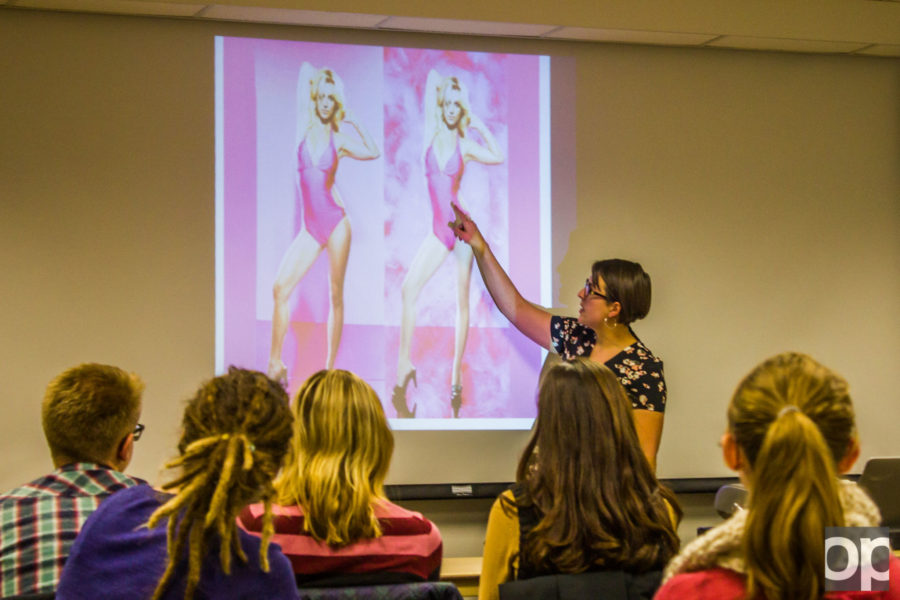Dr. Erin Meyers dishes on media, gender and body image
Thursday, Oct. 26, Dr. Erin Meyers of the Department of Communications and Journalism took the podium to talk to students about the issues related to how media affects how people sees their bodies.
Thursday, Oct. 26, Dr. Erin Meyers of the Department of Communications and Journalism took the podium to talk to students about the issues related to how media affects how people sees their bodies.
Meyers said it’s a problem for women, men and even children nationwide in a talk co-sponsored by the To Write Love on Her Arms (TWLOHA) organization and the Feminist Activism Forum.
“We are just not happy with our bodies” she said, citing that 91 percent of college women on college campuses have tried to control weight through dieting, and that 97 percent of women said they had at least one negative thought on their bodies per day. Even more shocking, Dr. Meyers said that many participants in this study reported having 35, 50 or even 100-plus negative thoughts about themselves per day.
This talk was focused on teaching students that what is seen in media affects how people see their bodies. She referenced how even the modes seen on T.V aren’t even what the models themselves look like.
Over 25 million Americans suffer from some kind of eating disorders, Meyers noted.
“We all have bodies,” she said. “But the media encourages us to look at our bodies in a negative way.”
Meyers said that the media’s influence is not the only factor in determining a cause for eating disorders: sometimes, psychological, family and social aspects are important too.
However, she clarified that ads were still important because they’re always around us. According to the presentation, the average American sees 5,000 ads per day, both in passive and aggressive formats.
“We have to challenge, critique and recognize how the media reinforces our negative and narrow views on our bodies, and celebrate when the media does offer more diverse and positive views on body image,” Meyers said.
Kelsey Green, To Write Love on Her Arms representative, said that students could get involved in various ways.
“Some members of TWLOHA have been writing positive messages on sticky notes and putting them across campus to help people feel more confidant about themselves,” Green said. “We also pass our guilt-free candy to tell students its okay to take a break one in awhile.”
During the talk, Dr. Meyers brought up a few activities students can get involved in with regards to body positivity.
“Students can pledge to be ‘Fat Talk’ free, and can actively think about how their words matter. Students can also get involved with ‘Love Your Body’ week, coming up this winter,” Meyers said.






